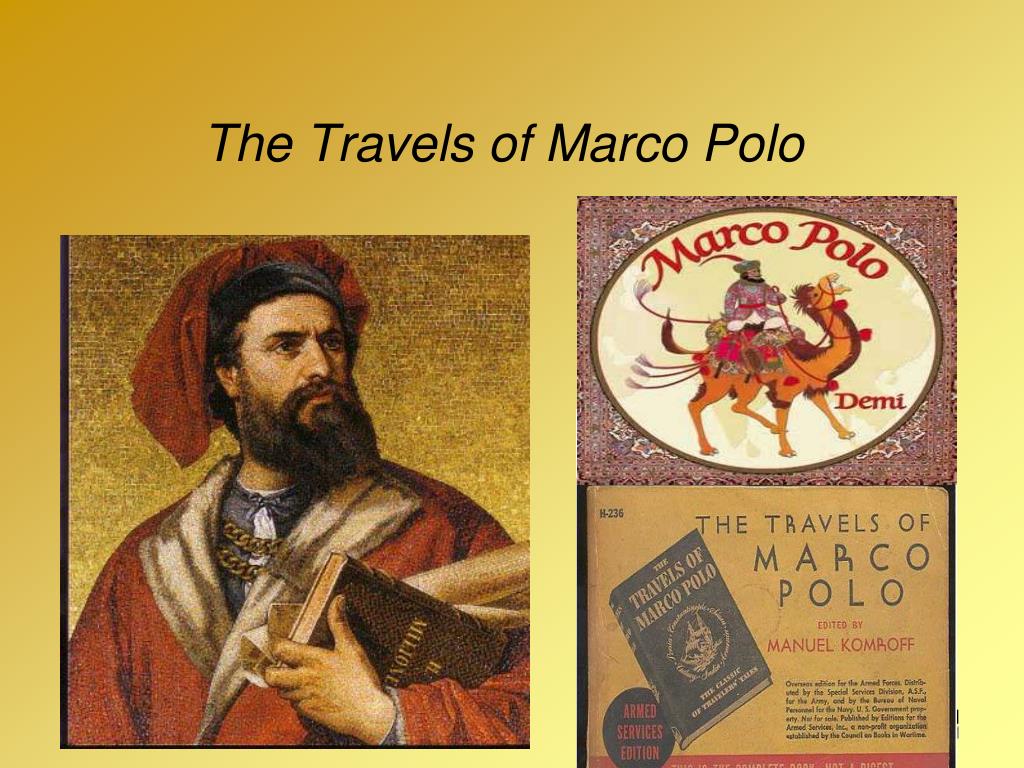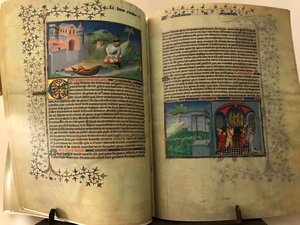The Travels of Marco Polo
12/6/2022 10:30:00 AM
Do you know?
- Marco Polo is remembered thanks to a colorful and popular narrative about his voyage to and experiences in Asia, known simply as “The Travels of Marco Polo.”
- Marco Polo was among the first Europeans to describe many of the advanced technologies found in China.
Let's explore more about his journey!
Let's learn some new words before you read the passage:
Listen and complete the passage.
| express | seeping | united |
| ambassadors | court | bandits |
In 1271, Marco Polo, a seventeen-year-old teenager, traveled with his father and uncle on a journey to China. They went to the of Kublai Khan. The journey took three and a half years. It was filled with dangers, including and bad weather. The men traveled through blazing hot sand and wildlands. They crossed high mountains and a huge desert. Marco kept careful journals of all that he saw and many of the stories he heard.
After his return, Marco talked to a writer about his journey. He described things people had never seen or heard about. His story was published as The Travels of Marco Polo. He described great palaces, rich princes, and things never experienced in Europe. He said that he had seen burning rocks, which we call coal today. He told of oil from the ground. He said it was used for lighting and medicine. He explained the use of paper money in China long before other nations used this kind of money. Marco explained how the Great Khan kept his empire under his control by using a fast mail system. Letters and orders were sent by a pony across the kingdom. Marco talked of gold-covered temples and kings with piles of pearls and rubies. He described the rhinoceros and crocodile among other animals new to Europe. The long-time traveler told many tales of the people he met and their customs.
The Polos were finally allowed to leave China as for the Khan. They delivered a princess from the Khan as a bride for a king. Many readers thought Marco’s stories were made up, but most of the things Marco Polo said he saw have been proven to be true.
Read and answer the following questions.
The Travels of Marco Polo

In 1271, Marco Polo, a seventeen-year-old teenager, traveled with his father and uncle on a journey to China. They went to the court of Kublai Khan. The journey took three and a half years. It was filled with dangers, including bandits and bad weather. The men traveled through blazing hot sand and wildlands. They crossed high mountains and a huge desert. Marco kept careful journals of all that he saw and many of the stories he heard.
After his return, Marco talked to a writer about his journey. He described things people had never seen or heard about. His story was published as The Travels of Marco Polo. He described great palaces, rich princes, and things never experienced in Europe. He said that he had seen burning rocks, which we call coal today. He told of oil seeping from the ground. He said it was used for lighting and medicine. He explained the use of paper money in China long before other nations used this kind of money. Marco explained how the Great Khan kept his empire united under his control by using a fast mail system. Letters and orders were sent by a pony express across the kingdom. Marco talked of gold-covered temples and kings with piles of pearls and rubies. He described the rhinoceros and crocodile among other animals new to Europe. The long-time traveler told many tales of the people he met and their customs.
The Polos were finally allowed to leave China as ambassadors for the Khan. They delivered a princess from the Khan as a bride for a king. Many readers thought Marco’s stories were made up, but most of the things Marco Polo said he saw have been proven to be true.
Source: Daily Warm-ups - Nonfiction Reading Grade 6
When was Marco Polo born?
- 1288
- 1271
- 1254
What is NOT mentioned about Marco Polo in the text?
- He saw animals unfamiliar to Europeans in China.
- He was confronted with difficulties before reaching China.
- He was arrested for trespassing on Great Khan's land.
According to the text, many readers of The Travels of Marco Polo _____.
- mocked Marco Polo for going to China
- insulted the Polos for making up stories
- doubted the stories told by Marco Polo
What can be inferred from the text?
- The construction of palaces and temples in China caused lots of damage.
- The Great Khan's empire soon collapsed after Marco Polo left.
- Ancient China was vastly wealthy and prosperous.
What can be another title of this text?
- The Polos - the Famous Travelers to China
- Marco Polo and his Eastward Voyage
- The Untold Story of Marco Polo's Journey
Build your vocabulary by learning these intensive phrases/idioms
Many doctors perceive the use of cod-liver oil for joint pain as _____.
- a bag of bones
- a heavy silence
- an old wives' tale
- a heavy heart
We bombarded the management team with charts, graphs, facts, and figures. Our boss responded by dozing off during most of our dog and _____ show.
- pony
- cat
- bird
- fish
Complete the second sentence, using the word given so that it has a similar meaning to the first sentence. Do NOT change the word given in brackets in any way.
Quarreling with his coach at public space, the football player was dismissed. (PACKING)
=> The footballer after a very public row with the coach.
Rearrange the words in a correct order to make a complete sentence (kéo từng từ/cụm từ về vị trí đúng để tạo thành câu hoàn chỉnh).